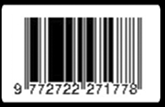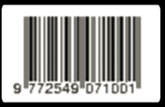Comparison Of K-Means Method And Fuzzy Clustering Algorithm In Determining Customer Satisfaction Test In Delivery Services
Abstract
Full Text:
PDFReferences
B, B., N, S., P, R. B., & Gugulothu, S. K. (2020). A novel assessment study on a dynamic analysis of hydrodynamic journal bearing performance: A Taguchi-fuzzy based approach optimization. Transportation Engineering, 2(July), 100033. https://doi.org/10.1016/j.treng.2020.100033
Diez-Olivan, A., Pagan, J. A., Sanz, R., & Sierra, B. (2017). Data-driven prognostics using a combination of constrained K-means clustering, fuzzy modeling and LOF-based score. Neurocomputing, 241, 97–107. https://doi.org/10.1016/j.neucom.2017.02.024
Dou, R., Li, W., Nan, G., Wang, X., & Zhou, Y. (2021). How can manufacturers make decisions on product appearance design? A research on optimal design based on customers’ emotional satisfaction. Journal of Management Science and Engineering, xxxx. https://doi.org/10.1016/j.jmse.2021.02.010
Eldin, S. S., Mohammed, A., Hefny, H., & Ahmed, A. S. E. (2021). An Enhanced Opinion Retrieval Approach on Arabic Text for Customer Requirements Expansion. Journal of King Saud University - Computer and Information Sciences, 33(3), 351–363. https://doi.org/10.1016/j.jksuci.2019.01.010
Klir, G. J., & Yuan, B. O. (1995). Fuzzy sets and fuzzy logic (P. Guerrieri (ed.)).
Kuhl, J., & Krause, D. (2019). Strategies for customer satisfaction and customer requirement fulfillment within the trend of individualization. Procedia CIRP, 84, 130–135. https://doi.org/10.1016/j.procir.2019.04.278
Likas, A., Vlassis, N., & Verbeek, J. J. (2003). The global k -means clustering algorithm. 36, 451–461.
Lin, E. M. H., & Tseng, M. M. (2018). Tolerances of Customers’ Requirements: A Review of Current Researches. Procedia CIRP, 72, 1208–1213. https://doi.org/10.1016/j.procir.2018.03.203
Liu, C., Chang, T., & Li, H. (2013). Clustering documents with labeled and unlabeled documents using fuzzy semi-Kmeans. Fuzzy Sets and Systems, 221, 48–64. https://doi.org/10.1016/j.fss.2013.01.004
Liu, Y., Ma, Z., Yan, Z., Wang, Z., Liu, X., & Ma, J. (2020). Privacy-preserving federated k-means for proactive caching in next generation cellular networks. Information Sciences, 521, 14–31. https://doi.org/10.1016/j.ins.2020.02.042
Naumov, V. (2018). Modeling Demand for Freight Forwarding Services on the Grounds of Logistics Portals Data. Transportation Research Procedia, 30, 324–331. https://doi.org/10.1016/j.trpro.2018.09.035
Nguyen, T. T. N. (2020). Developing and validating five-construct model of customer satisfaction in beauty and cosmetic E-commerce. Heliyon, 6(9), e04887. https://doi.org/10.1016/j.heliyon.2020.e04887
Passino, K. M., & Yurkovich, S. (1998). Fuzzy Control. Addison Wesley Longman.
Schneberger, J. H., Luedeke, T., & Vielhaber, M. (2018). Agile Transformation and Correlation of Customer-Specific Requirements and System-Inherent Characteristics - An Automotive Example. Procedia CIRP, 70(i), 78–83. https://doi.org/10.1016/j.procir.2018.03.068
Uzir, M. U. H., Jerin, I., Al Halbusi, H., Hamid, A. B. A., & Latiff, A. S. A. (2020). Does quality stimulate customer satisfaction where perceived value mediates and the usage of social media moderates? Heliyon, 6(12), e05710. https://doi.org/10.1016/j.heliyon.2020.e05710
Yu, A. S., Chu, S., & Wang, C. (2018). Two Improved k-means Algorithms. Applied Soft Computing Journal, 68, 747–755. https://doi.org/10.1016/j.asoc.2017.08.032
DOI: http://dx.doi.org/10.31000/jika.v5i2.4511
Article Metrics
Abstract - 1006 PDF - 724Refbacks
- There are currently no refbacks.

This work is licensed under a Creative Commons Attribution-ShareAlike 4.0 International License.
INDEX BY :
 |
 |
 |
 |
 |
 |
 |










 Jurnal Of Informatics (JIKA)
Jurnal Of Informatics (JIKA) 